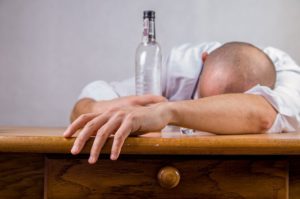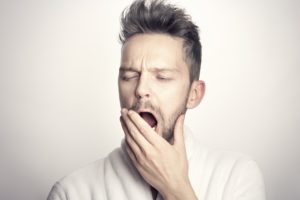Filter Blogs By
Alcohol and Erectile Dysfunction
Alcohol is a common aphrodisiac and lowers social inhibition. The drink lowers your impulse control, which in turn reduces sexual performance. There are many studies that highlight the effects of prolonged alcohol intake resulting in sexual dysfunction. In fact, alcohol abuse is the leading cause of impotence.
 How Does Alcohol Abuse Affect Your Body?
How Does Alcohol Abuse Affect Your Body?
Alcohol is a known depressant. The more you drink, the more your body system slows down and ultimately affecting your sexual performance. Alcohol and erectile dysfunction are closely linked. How does your body respond to alcohol consumption?
Nervous System Depressant
Alcohol affects circulation, respiratory, and suppresses the sensitivity of nerve endings.
Dehydration
Alcohol takes away oxygen and blood flow necessary for achieving greater sensation to your genitals.
Erectile Dysfunction
Dehydration leads to a decrease in blood volume and an increase in angiotensin. Angiotensin is the hormone commonly associated with erectile dysfunction. Long-term alcohol abuse damages your nervous system. It means your body will be unable to trigger the necessary signals to cause an erection. Prolonged abuse can cause irreversible damage to your penis nerves. Besides, erectile dysfunction doesn’t go away even when you are sober.
Hormone Disruptor
Alcohol abuse lowers testosterone levels resulting in diminishing sexual function and drive. Induced sexual dysfunction can be reversed.
What Lifestyle Factors Can Reverse Erectile Dysfunction?
According to research findings, lifestyle improvements have a direct effect on erectile functioning. According to a recent study of Australian men of 35-70 ages, almost a third had erectile problems for 5 years. The problems drastically improved in 29% of these men, which suggests that erectile dysfunction is controllable. Their lifestyle was behind the improvements. So what should you do?
Enhance Your Heart Health
According to a study conducted in 2004, poor cardiovascular health affects the ability of your body to deliver blood to your penis for an erection. Heart disease risks also affect your sexual performance. Other numerous studies have also tied more risk factors to erectile dysfunction.
- Alcohol – reduce your alcohol consumption. Heavy drinkers suffer from ED mostly.
- Weight – overweight men need to manage their weight to improve their erectile function.
- Exercise – physical activity combined with a healthy diet, drastically improves erectile function.
Avoiding the above risk factors reverses your erectile dysfunction.
Boost Testosterone
Take urgent steps to increase your testosterone levels. Your male sexual hormone is directly tied to sexual performance. Use the following natural remedies to increase your testosterone levels.
- Lose weight
- Exercise
- Reduce stress
The tips not only improve your testosterone levels but also improves your heart health, which reduces erectile dysfunction symptoms.
 Adequate Sleep
Adequate Sleep
Lack of enough rest substantially affects your sexual performance. Men with interrupted breathing or sleep apnea also suffer from ED. Practice better sleep patterns and have ample rest to improve your body health.
Increase your Sexual Frequency
Regular sex helps improve your overall sexual performance. People who have less intercourse on a weekly basis are more likely to develop ED. So, be careful when you abstain from having sexual intercourse. Tackle your performance anxiety to reverse ED. For instance, work on your depression, relationship problems, or anxiety.
Summary
Alcohol and erectile dysfunction go together. Reducing your intake of the substance improves your sexual performance and helps you enjoy a happy relationship with your partner. It’s good to watch the triggers and manage the symptoms by taking the necessary actions.
For instance, work on your relationship problems as a healthy family life improves your performance in the bedroom. Issues lie anxiety, depression, and weight gain heed handling.
Contact us at (718) 568-7143.
Back to Blogs
